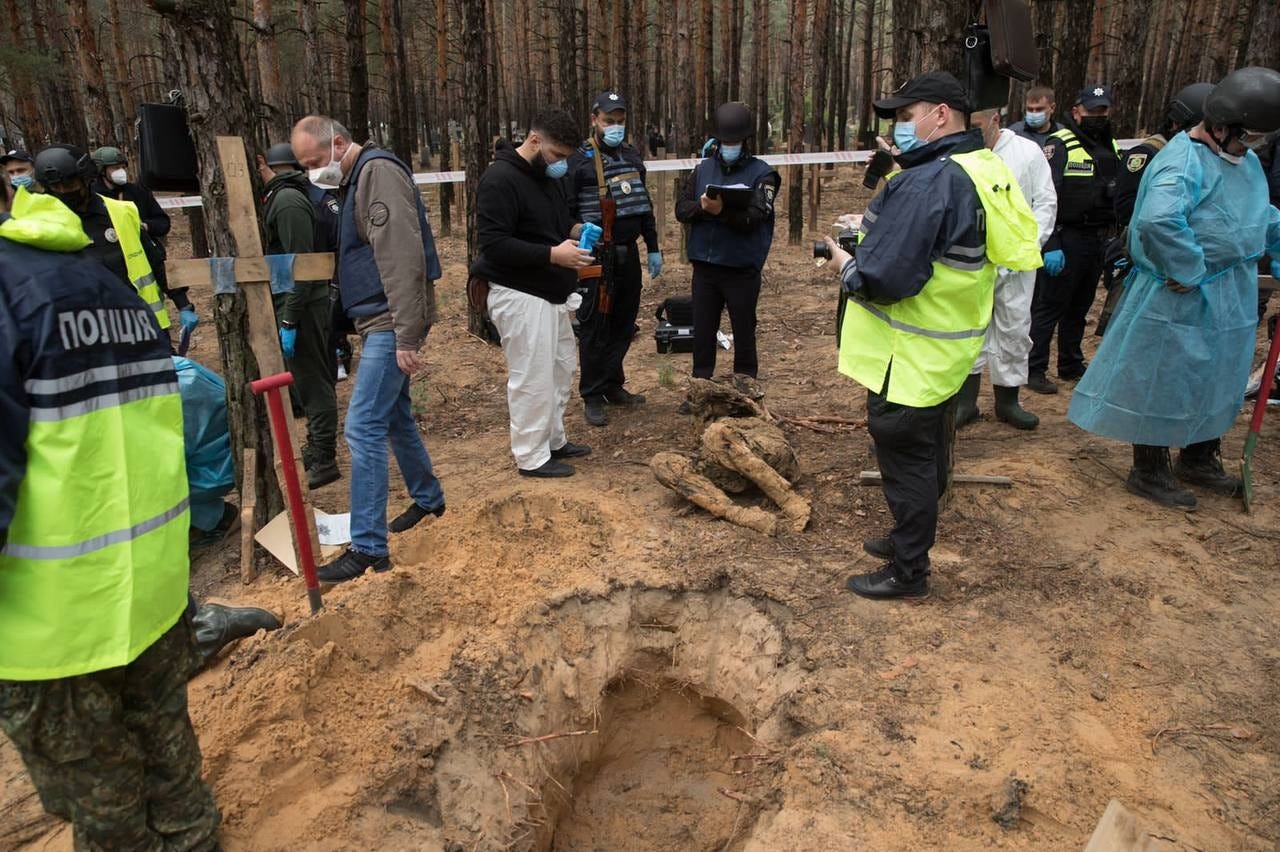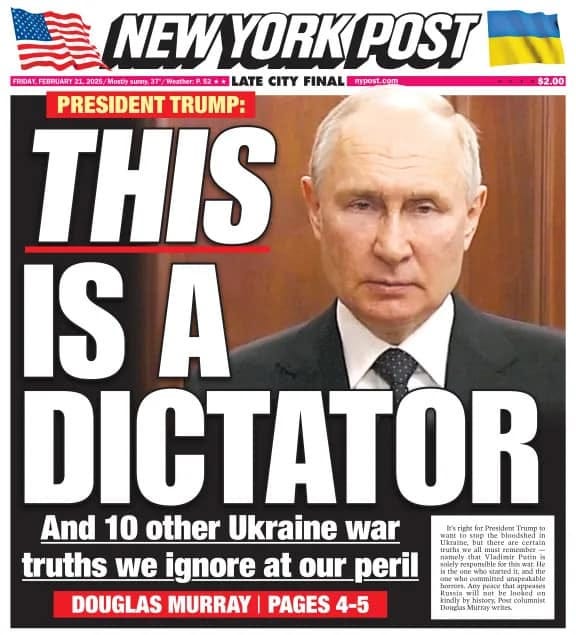
For those who don’t know, I was born in Ukraine when it was still part of the USSR. I came to the United States as a small, scared kid, who knew exactly five English words: comb, foot, egg, book, bed. I remember those words because I had to start from scratch. I had to learn English grammar and vocabulary, adjust to US culture, make new friends and learn to communicate with them, and most of all, I took extra effort—even as an eight-year-old kid—to hide where I was born.
The Cold War was still going on. The USSR was considered evil, and I told everyone I met that I was French because I was terrified of getting beaten up.
In the USSR—specifically in L’viv, Ukraine, where I was born—I was bullied and beaten up by both teachers and fellow students because I was a Jew with a weird last name.
Those experiences shaped the way I interacted with Americans. I understood that I wouldn’t be abused for being a Jew, but for being a “Russian”—no one differentiated between Russia and Ukraine back then—oh yes!
Fast forward to the present. I got my undergraduate degree from the Johns Hopkins University. I was a scholarship kid with some loans thrown in, and I served in the Army a total of seven years—four years active duty, and three years in the Army National Guard. I have a Master’s degree in National Security Studies. I entered the US intelligence community after I returned from my last deployment. I wanted to serve. I wanted to protect the country that has given me so much opportunity to learn, achieve, and succeed!
During the past three years, I’ve watched in horror as my former homeland, which has worked so hard to become a sovereign nation, fought corruption, and strove to integrate into the international community, was viciously attacked by its Russian neighbor.
Russia committed genocide in Bucha, in Izium, and other Ukrainian regions. It stole Ukraine’s cultural heritage and kidnapped its children. It destroyed civilian infrastructure. Russia has engaged in unspeakable atrocities.


Three years of this.
Three horrifying years.
The response of the international community to the Russian attack was swift, but the West, in particular, has underestimated Russia’s response to the gradual tightening of sanctions and other restrictions. Western allies misjudged Russian president Putin’s willingness to sacrifice Russia’s economy and destroy the standing Russia built in the global community after the USSR fell. They thought gradual tightening of sanctions and other restrictions would eventually prompt Putin to stop.
They were wrong.
As a young analyst, I was suspicious about all the changes that appeared to be happening in Russia.
At one point, I thought of a short story concept: What if Russia’s integration into the global economy was all a part of Vladimir Putin’s long-term plan to make the world dependent on Russia’s energy exports, so that when Russia started invading its neighbors, like it did with Georgia in 2008, the rest of the world would be loath to punish it for fear of energy shortages?
This is no longer a fiction story. It’s reality.
And Putin, despite the economic chaos, the billions of dollars Russia has to spend evading sanctions, and the fact that he now has to rely on North Korea to supplement his troops in Ukraine, continues his attacks.
Three years of reality
The international community is adjusting. It’s adjusting slowly, but it’s adjusting.
EU member states have increased their defense spending by 30 percent between 2021 and 2024.
And European defense spending is expected to increase by an additional €100 billion in real terms by 2027.
Since February 2022, global powers have sanctioned more than 21,000 Russian individuals, entities, vessels, and aircraft. And more sanctions are on the way, as the third anniversary of Russia’s full-scale invasion looms large.
The EU’s 16th sanctions package since the full-on war began are expected to include:
Sanctions against 73 shadow fleet vessels that evade sanctions and transport Russian oil above the $60 per-barrel price cap
Gradual ban on Russian primary aluminum imports in order to disrupt supply chains reliant on Russian metals
Additional sanctions against entities and individuals involved in sanction evasion and illicit trade
Export bans on chemicals, chrome and other products used in precision machine tools
Ban on servicing oil and gas refineries
Ban on the export of video game consoles (thank you to Phil for explaining the difference!), such as Xbox, Playstation, and others, because apparently Russian forces use them to operate their drones
The UK also plans to unveil new sanctions against Russia tomorrow to mark the three-year gruesome milestone. UK Foreign Secretary David Lammy says this will be the biggest package of sanctions against Russia since the invasion began.
Lammy also announced a pledge to provide £3 billion ($3.78 billion, €3.61 billion) annually to Kyiv and "being ready and willing to provide UK troops as part of peacekeeping forces if necessary."
You know who else is ready to provide peacekeeping troops? Switzerland. Thomas Suessli, the head of the Swiss armed forces clarified that the country differentiates between peacekeeping and peace enforcement.
"Peace-enforcement means peace must be imposed by force of arms. Switzerland does not participate" in that case, he stressed.
"Peacekeeping presupposes Russia and Ukraine agree to cease hostilities and accept the UN sending a peacekeeping force to guarantee peace," Suessli said.
Switzerland has also adopted the EU’s sanctions regimes against Russia.
Other countries, such as France, Canada, Japan, and Australia also imposed unilateral sanctions against Russia, since the UN Security Council is unable to do so with Russia and China having veto power.
Even Türkiye’s Erdogan recently reaffirmed unequivocally Türkiye's full support for Ukraine's territorial integrity and sovereignty.
So where’s the United States?
The short answer is, we don’t know.
Before being confirmed, Treasury Secretary Scott Bessent seemed to have been a fan of sanctions against Russia. Now, the United States is negotiating with Russia, leaving both the EU and Ukraine - the country that’s been under attack for the past three years - on the sidelines, while trying to pressure Ukraine into a minerals deal, which the Trump administration calls an “economic partnership.”
Secretary of State Marco Rubio is saying that the United States will only provide sanctions relief to Russia if Moscow noticeably changes its behavior. What does that sanctions relief look like? We don’t know.
Does it involve concessions on the part of Ukraine, the country that had its territory stolen, its children kidnapped, its infrastructure destroyed, and its citizens tortured and murdered? We don’t know.
Does it involve Russia leaving the territories it has stolen and occupies by force? We don’t know.
Does it involve Russia paying reparations for the hundreds of billions of dollars in damage it has caused? We don’t know.
Let’s get something clear here. Ukraine is the VICTIM. Russia is the AGGRESSOR. The New York Post, which has traditionally been very supportive of Trump and the GOP, published an essay on February 20 in response to Trump accusing Ukrainian president Zelensky of being a dictator, confirming that Putin is the dictator in this scenario. Putin is the one who sent troops across the border unprovoked, denying that Russia plans to attack Ukraine until the very last minute. Putin is the one who illegally annexed Ukrainian territory.
By the way, Zelensky today offered to resign as President of Ukraine if that meant the end of the war. Does that sound like a dictator to you?
Most Ukrainians do not want to be part of Russia, and most want Ukraine to join NATO.
And recent polling suggests that not only does Volodymyr Zelensky still have the confidence of roughly 57 percent of Ukrainians, despite Trump’s calls for Ukraine to hold (unconstitutional) elections, the majority of Ukrainians, including Zelensky’s political opponents, reject the idea of wartime elections.
Two of Zelenskyy’s main political rivals, Petro Poroshenko and Yulia Tymoshenko, have publicly rejected the idea of wartime elections as impractical and illegitimate. Ukraine’s vibrant civil society has also voiced its opposition to the return of elections before a peace agreement has been signed. Meanwhile, a new opinion poll conducted in February 2025 found that 63 percent of Ukrainians are against holding any national votes until the war with Russia is over.
So what will the United States do tomorrow, on the third anniversary of Russia’s full-scale invasion?
Will the US Treasury note the grim anniversary with a large tranche of designations, like it did during the past two years?
Our allies are certainly planning on releasing significant sanctions packages.
As for the United States… who knows?
A webinar discussion
On Thursday, February 27, I will be hosting a live webinar with a friend and colleague who founded a due diligence firm in Kyiv. Here’s the registration link. It’s free. This is the second webinar we’ll be doing to mark the third anniversary of the attack. We will be taking questions from the audience, discussing the major developments during the past year, and hoping once again that we won’t have to repeat this type of webinar in 2026.
I urge you to join us.







Phew, I’m not crazy. And you don’t need the credit to me in there, but thank you.
Thank you for this.
Two editorial nits:
1. I believe it’s North Korea sending troops, not South Korea?
2. Surely it’s video games consoles, not video games, which are the software which runs on the consoles? Or does the formal language variant used for sanctionese define things differently to common usage?